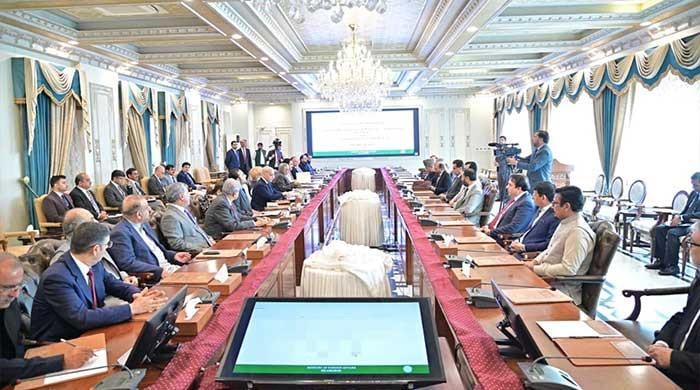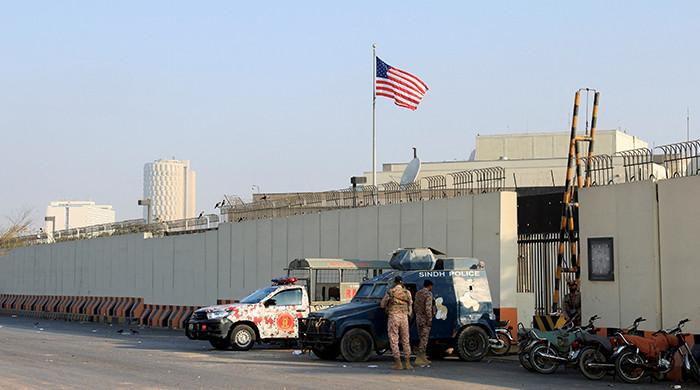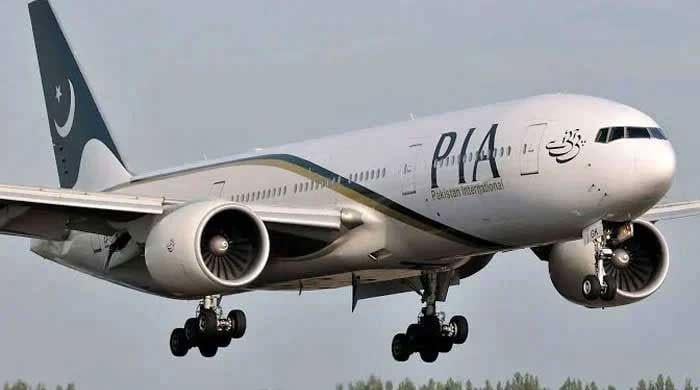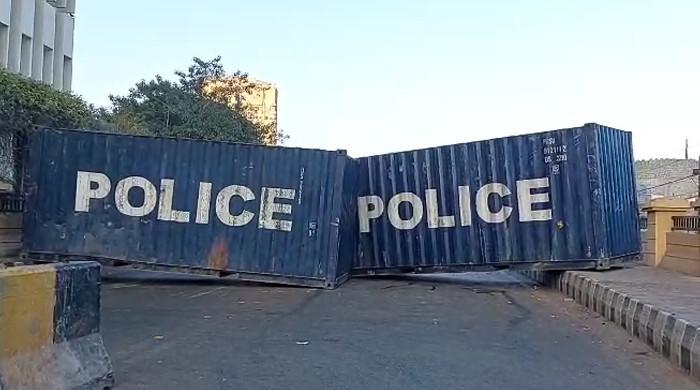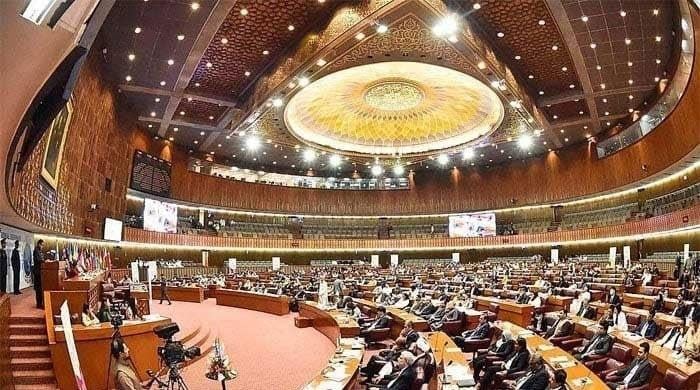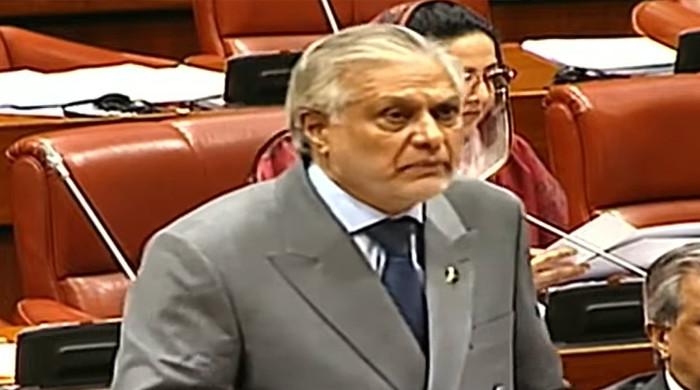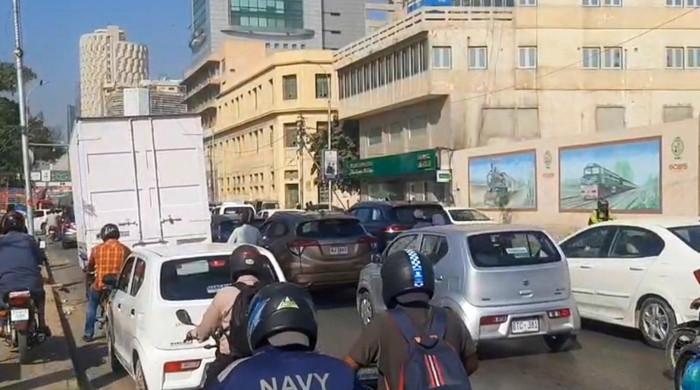PTI knocked out of electoral arena as 'bat' symbol withdrawn
Election Commission of Pakistan did not victimise PTI, apex court's unanimous verdict states
January 13, 2024
- SC upholds ECP's Dec 22 decision stripping PTI of 'bat' symbol.
- Verdict states apex court judges "don't agree" with PHC's judges.
- Top court says "it cannot be stated that ECP was victimising PTI".
ISLAMABAD: The Pakistan Tehreek-e-Insaf (PTI) took a major blow on Saturday after the Supreme Court annulled the Peshawar High Court’s (PHC) January 10 order, depriving the former ruling party of its 'iconic' electoral symbol — bat — just days ahead of the general elections.
A three-member bench — headed by Chief Justice of Pakistan (CJP) Qazi Faez Isa and comprising Justice Muhammad Ali Mazhar and Justice Musarrat Hilali — announced the verdict after a day-long hearing.
The apex court's unanimous verdict came after hours of wait as Chief Justice of Pakistan (CJP) Qazi Faez Isa-led three-member bench decided to uphold the Election Commission of Pakistan's (ECP) plea.
The election governing body had assailed the PHC verdict declaring the commission’s order “illegal, without any lawful authority and of no legal effect”.
The contention started with the December 22, 2023, decision of the election commission, barring the PTI party from keeping its electoral symbol for the upcoming February 8 elections, citing irregularities in their internal polls that did not comply with the party's own constitution and election laws.
This prompted the Imran Khan-led party to challenge the revocation of their symbol in the PHC. A single-member judge granted temporary relief, reinstated the bat symbol, and referred the case to a larger bench for a hearing on January 9.
Then, on December 30, the polling body challenged the PHC’s jurisdiction over the matter. However, in a dramatic turn of events, the PHC reversed its earlier decision and upheld the ECP’s order.
Facing the prospect of losing its iconic cricket bat symbol for the upcoming elections, the PTI took its fight to the highest court in the land — the Supreme Court. However, in a strategic move, they later withdrew their appeal, hoping for a favourable outcome from the PHC.
And the PTI did get what it wanted with PHC's nullification of the ECP decision, but not for long as today's verdict took away the much-sought-after electoral symbol.
The top court allowed ECP's petition by setting aside the high court's ruling, and upheld the December 22 decision of the electoral body.
The five-page verdict stated that the apex court judges "do not agree with the learned judges [of the PHC] that the ECP did not have 'any jurisdiction to question or adjudicate the intra-party elections of a political party.'"
It stated that accepting any such interpretation would render all provisions in the Election Act, 2017, that require the holding of intra party elections "illusory and of no consequence and be redundant".
The verdict stated that since the ECP had been calling upon PTI to hold its intra party elections since 24 May 2021, the time when the party was in power, "it cannot be stated that ECP was victimising PTI".
In its reasoning for today’s verdict, the top court stated that the PTI’s petition filed in the PHC was “not maintainable” as it failed to disclose that another similar petition was pending before the five-member bench of the Lahore High Court (LHC).
The apex court underscored that although a petitioner “may elect to avail of his remedy before either court, but having chosen a particular court the same dispute cannot then be taken to the other court”.
It further stated that 14 PTI members, with stated credentials, had complained to ECP that the party's internal elections had not been held, but PTI brushed aside these claims, saying that the complainants were not the party members.
"[...] this bare denial was insufficient, particularly when they [complainants] had credibly established their long association with PTI," the verdict read.
"Democracy founded Pakistan, a fundamental aspect of which is the ability to put oneself forward as a candidate and to be able to vote, both within a political party and in general elections. Anything less would give rise to authoritarianism which may lead to dictatorship."
The hearing
During the hearing that spanned over nine hours, the PTI’s counsels objected to the ECP’s jurisdiction contending that the electoral body lacks the authority to take up the issue of intra-party polls as they are the party’s internal matters.
The electoral body lacks the authority to revoke the party’s “bat” symbol in response to the concerns raised by a few individuals, the PTI’s lawyer Barrister Ali Zafar noted.
They told the court that ECP’s behaviour towards the party is biased compared to other parties. They contended, relying on Article 22 and Article 25 of the Constitution, that the ECP had no authority to delve into a party’s internal matters and the details of intra-party polls.
They further stated that there was no election tribunal but the ECP itself declared the intra-party polls null and void, therefore, the commission could not move a high court to get its orders implemented.
The power ECP assumed is akin to a civil court but the election commission is not the court of law, the lawyers said.
Meanwhile, the members affiliated with the PTI, who appeared in the court in a personal capacity, complained that they tried submitting their nomination papers for the intra-party polls but they were told that only those who had been selected by the PTI founder Imran Khan could contest the elections.
During the hearing, Section 215 of the Election Act 2017, on which PHC’s verdict was based, came under discussion. It was argued that the details of the intra-party elections have to be submitted to the ECP in writing following the polls, after which the commission determines if the party has conducted the process in line with the law.
The ECP lawyer, presenting his arguments, maintained that the PHC exceeded its authority, as the courts do not have the authority to render any section of the law or Constitution ineffective, but only Parliament can do this through proper legislation.
At this, the court also observed that the PHC went over the line.
“How could the PHC declare any section of the Election Act redundant or called it absurd,” CJP remarked.
Moreover, the CJP questioned whether the PTI’s intra-party polls were in accordance with the law, rules, and regulations.
When questioned about its intra-party polls, the former ruling party’s lawyer maintained that due process was followed as per the party’s constitution.
The court reserved the verdict after hearing arguments from PTI lawyers Barrister Ali Zafar and Hamid Khan, ECP lawyer Makhdoom Ali Khan, and Akbar S Babar’s lawyers, as well as some PTI members Yousuf Ali, Bilal Azhar Rana, Mahmood Ali Khan, Mohammad Muzammil Sandhu and Noreen Farooq Khan.




